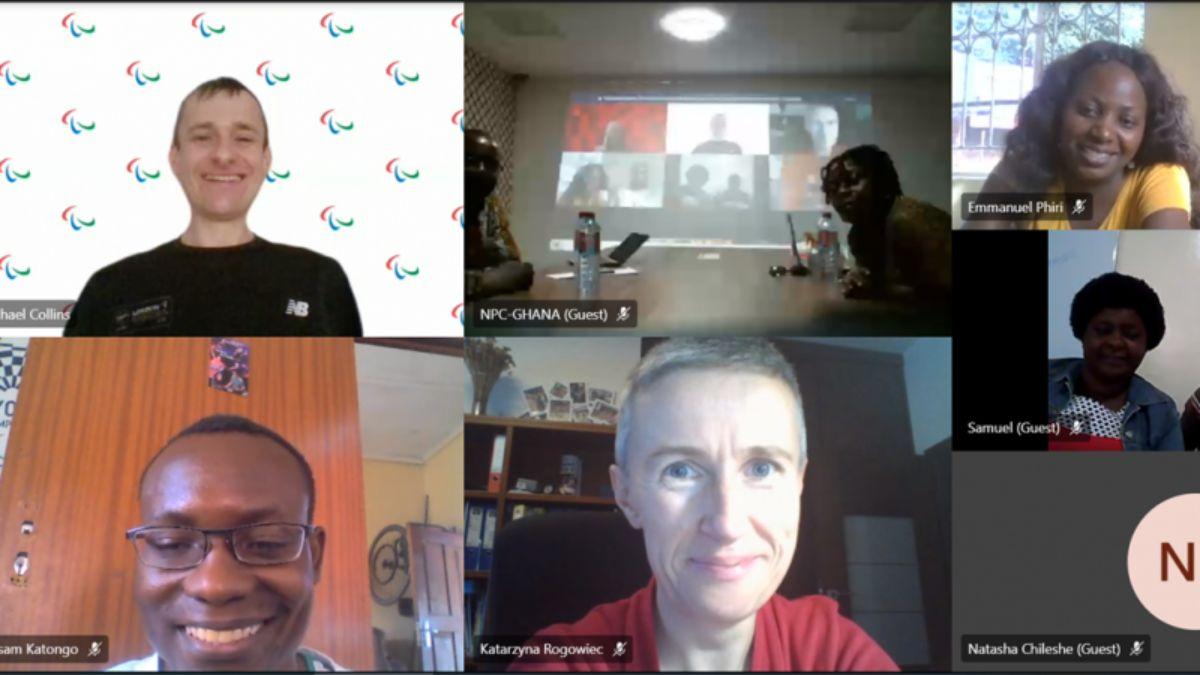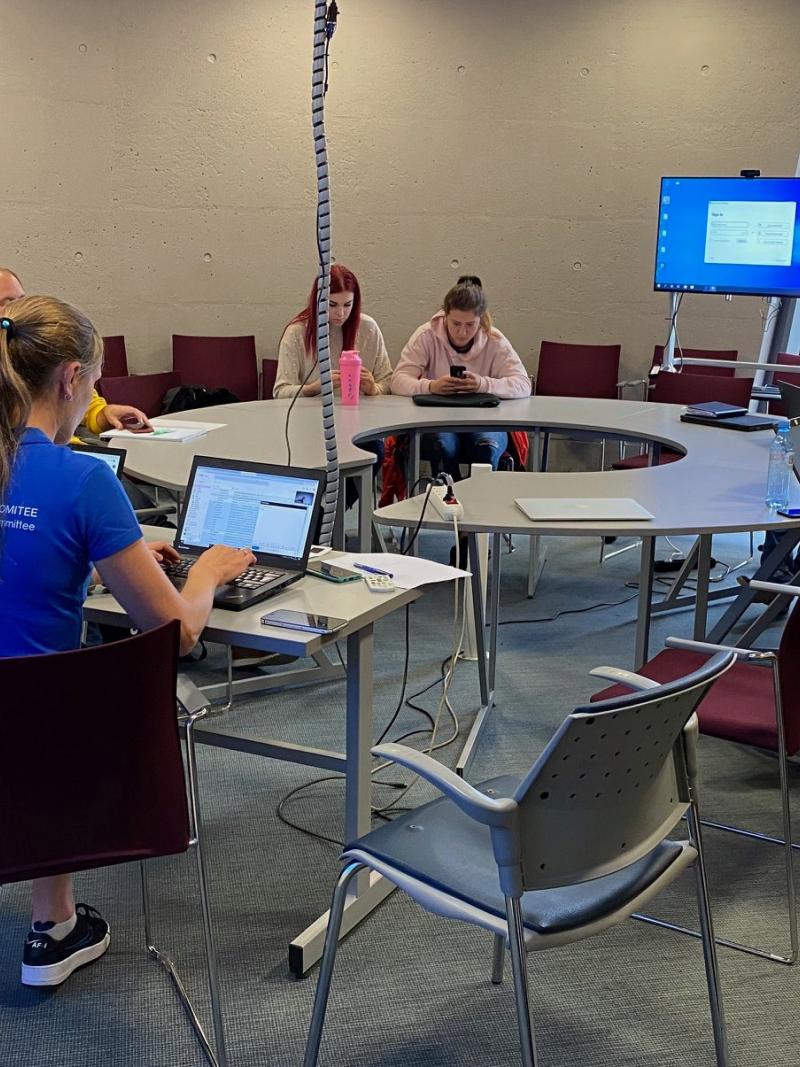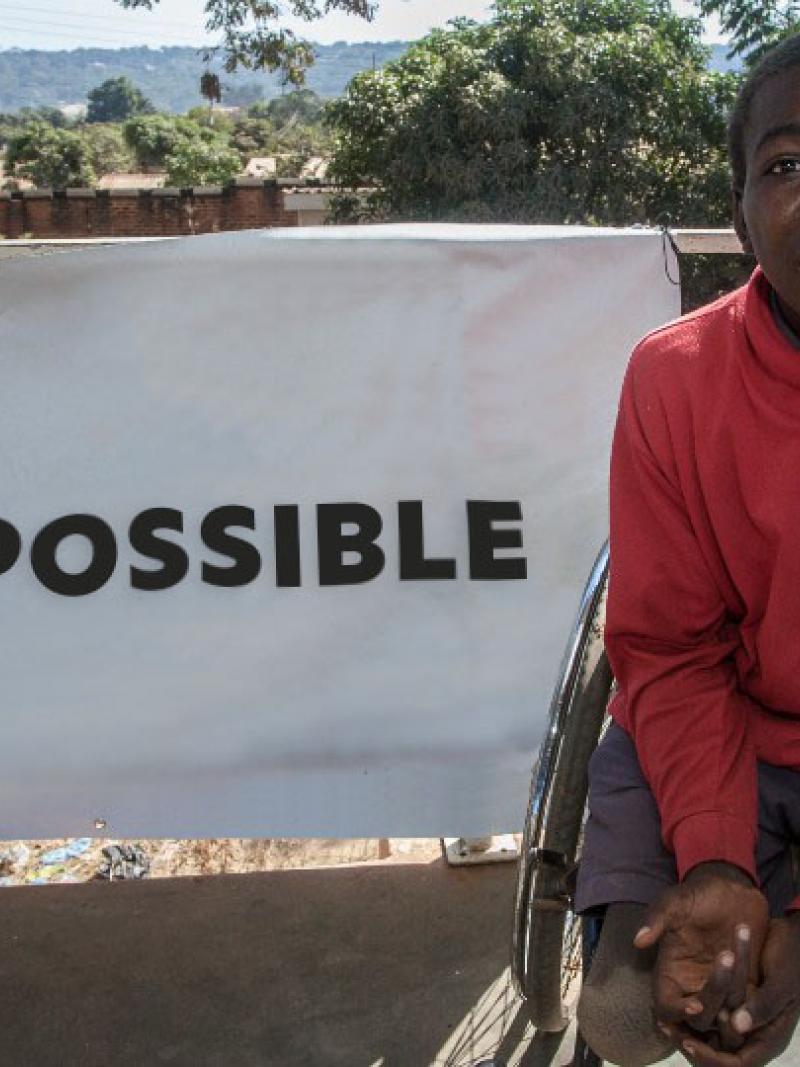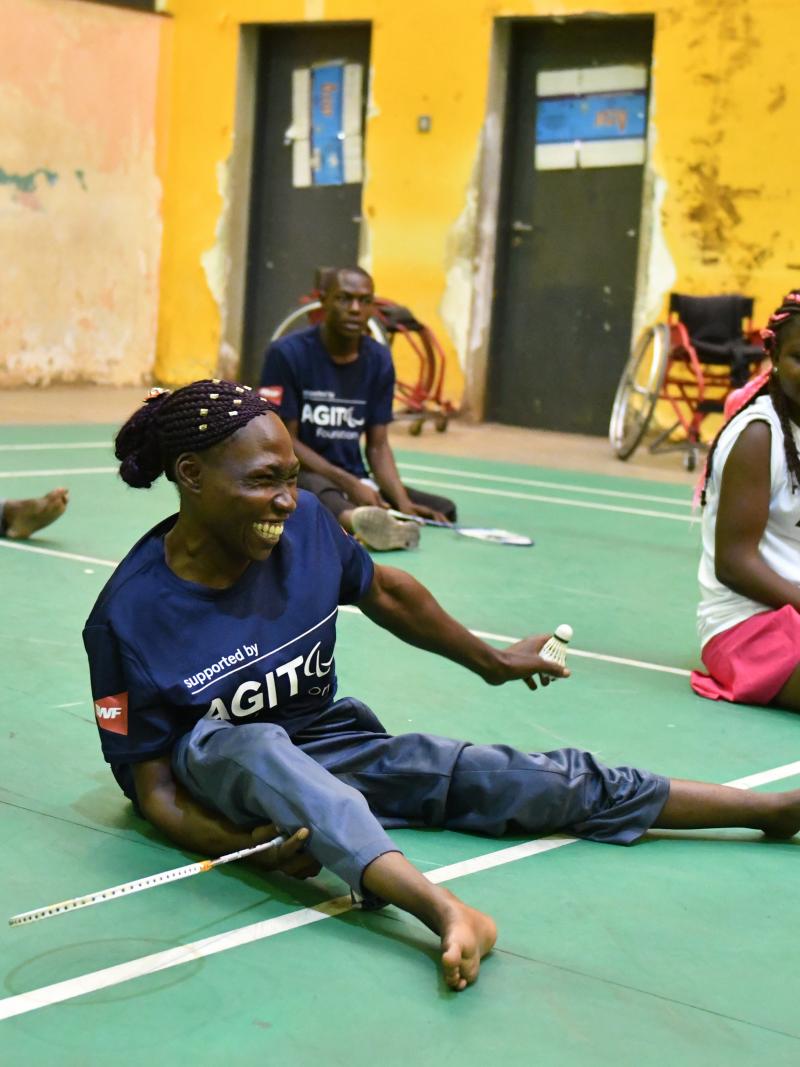I’mPOSSIBLE Educators on mission to overcome stigma in Africa
Course participants excited about newfound knowledge on training teachers about inclusion 28 Nov 2020
One of the first thoughts for Samuel Nkhoma whenever he ventures out of his Malawi home is the availability – and accessibility – of toilets.
Involved in a motorcycle accident more than 10 years ago, Nkhoma has since adapted to going about in his wheelchair. He imagines, however, that the challenges he had to overcome as an adult is just as much for youngsters with a disability.
Nkhoma, who participated in the I’mPOSSIBLE Educator Course, wants to change that, starting in schools.
“I generally stay away from places not because I’m an isolationist, but because they are not accessible,” he explained. “When it comes to talking about education, it’s very difficult for kids with disabilities to go to school and get an education.”
“And then the education itself – the facilities, the expertise of the teachers is just not up to speed.”
I’mPOSSIBLE, which will celebrate its third-year anniversary on 3 December, is the International Paralympic Committee’s (IPC) global education programme including a toolkit of resources for teachers to engage future generations in Para sports, and the history and values of the Paralympic Movement.
This particular November course was the first activity of the collaborative project Para Sport Against Stigma aiming to overcome stigma and discrimination against persons with disabilities in Africa.
Through the course, Nkhoma became a certified I’mPOSSIBLE Educator, who can then help teachers know how to implement the material effectively in their classrooms.
“Having something that is structured, something that is deliberate, to have the teachers on board, have them excited about this is important,” he said. “I’m looking forward to that because I really do believe this can make a huge difference and that will have an effect two, three, four, five years from now.”
Nkhoma was in rehabilitation from a second surgery a few years ago when he was invited to play a game of wheelchair basketball, which attracted media attention and comments of awe from onlookers. He continues doing sports. Other continue watching him in amazement.
“All along we thought these are the kids we should be keeping at home, or kids should not be involved. But this time around these, kids with disabilities are on the forefront, and it’s cool.”
CHANGING PERCEPTIONS
Phillipina Frimpong from Ghana was another participant in the I’mPOSSIBLE Educator Course; she believes that showcasing Para sports and Para athletes will resonate strongly with teachers, children and their communities.
“Previously people would think that people with disabilities would be shunned or teased or marginalised,” Frimpong said. “Now they see that they have unique values themselves, and apart from having a disability, there is nothing that an able-bodied person can do that someone with a disability cannot do.”
She added: “Having gone through the different learning styles of the Educator Course, I’ve been reflecting on my dealings with young girls whom I mentor. And I’m realising that that not everyone learns at the same pace. Not everyone appreciates things the same way a lot of us do. And this can be used in that area as well to make much more of a difference in how we teach about inclusion.”
The I’mPOSSIBLE Educator Course included six participants from Ghana, Malawi and Zambia who learned how to deliver scaled teacher training to schools across their country until the end of 2023. It is a part of Para Sport Against Stigma. The project is delivered by Loughborough University London (LU LDN) in partnership with the IPC and the University of Malawi, Chancellor College. It is part of AT2030, a programme funded by UK Aid and led by the Global Disability Innovation Hub.







